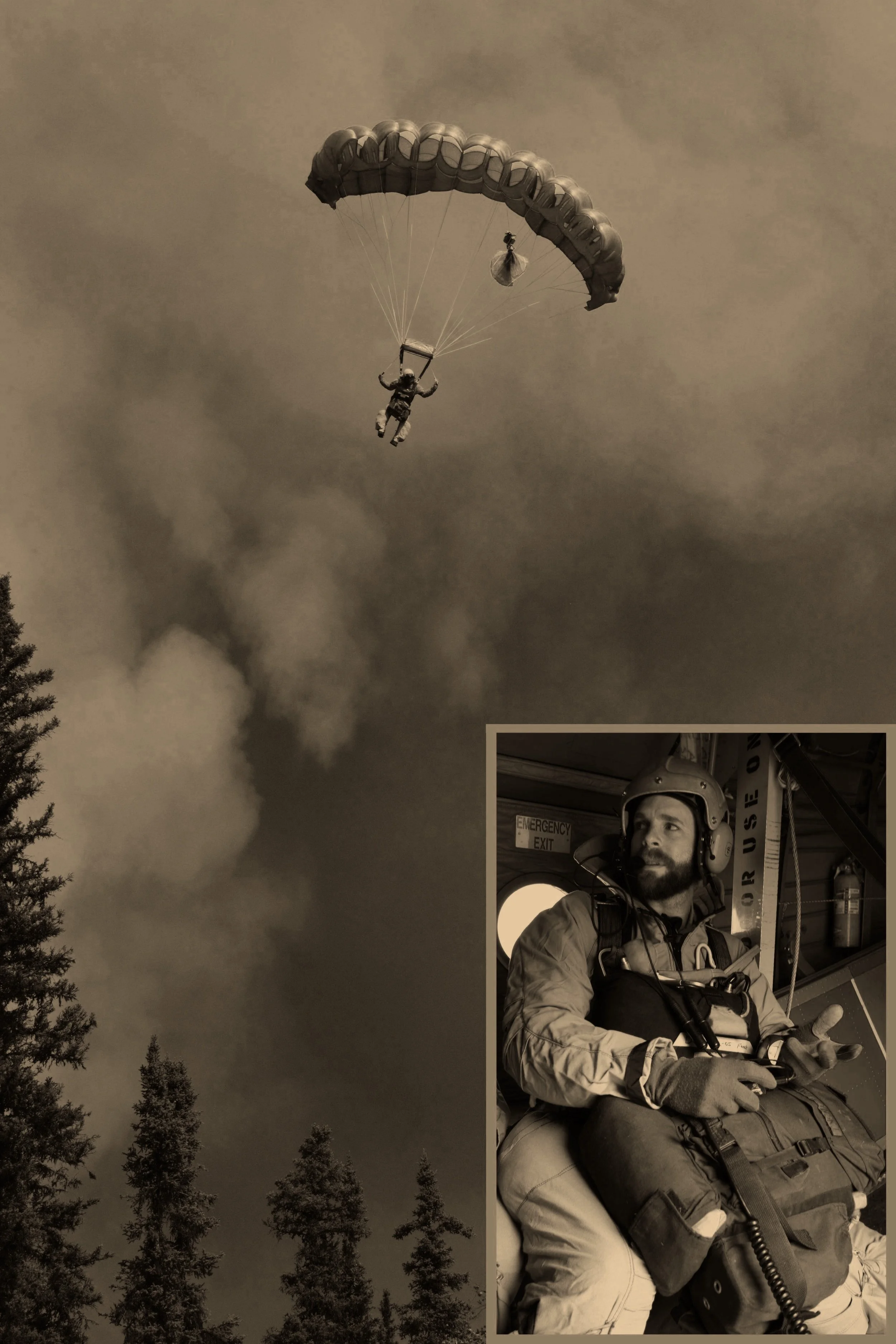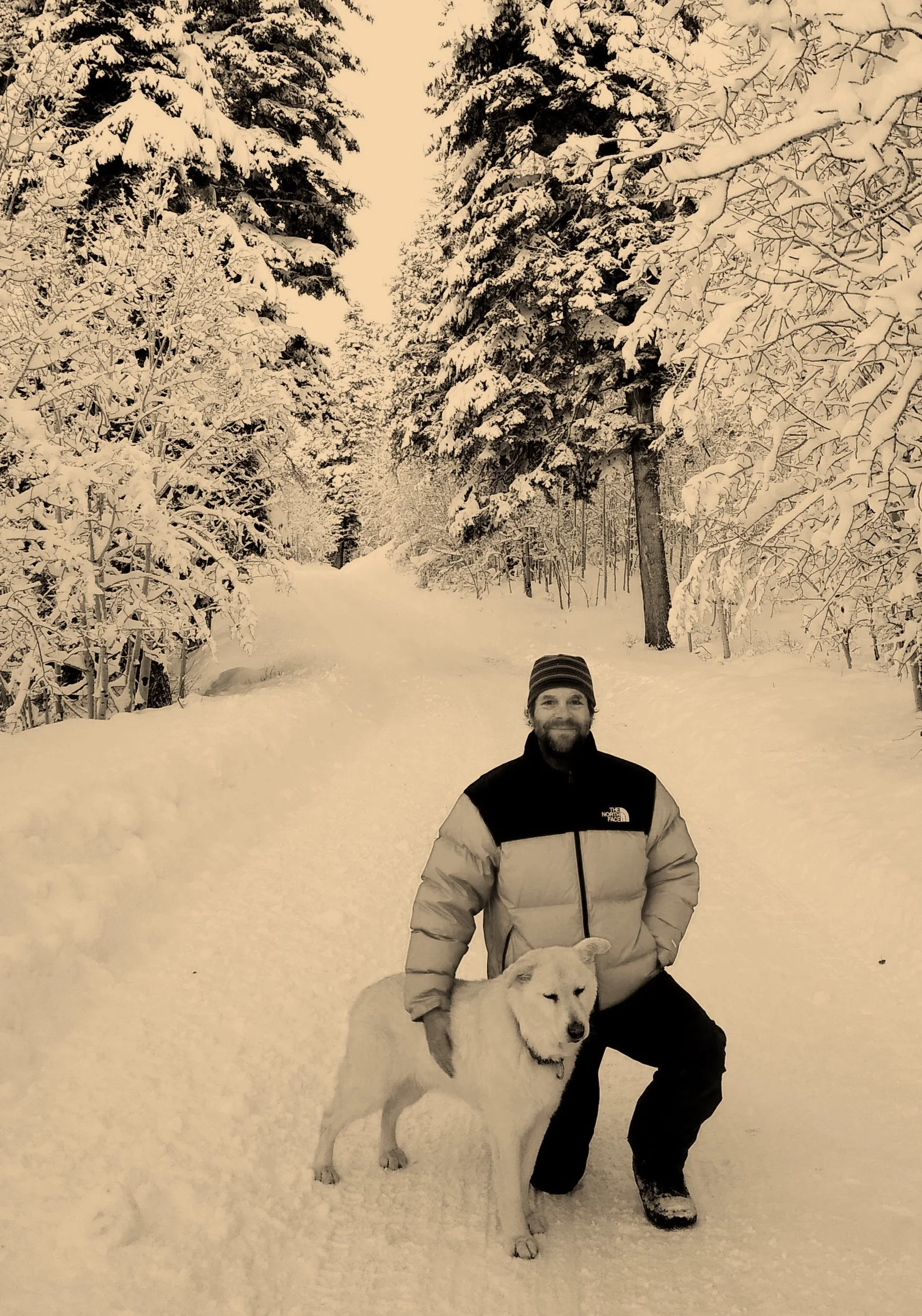
A View From 30,000 Feet
About The Author
Jon Frisch didn’t set out to study trauma—he lived it.
First as a boy trained in silence by the church. Then as a Marine taught to dissociate through pain. Later as a smokejumper and private contractor, where high performance and hypervigilance became survival strategies, not symptoms.
For decades, Jon carried what was never his to hold. Like many who serve, he mistook endurance for strength and silence for stability—until the cost of both became unbearable. After years of institutional loyalty, suicide attempts, and physical collapse, he began to dismantle the systems inside himself. He read. He wept. He sat in VA therapy rooms, learning how trauma reshapes the brain, body, and memory. The Body Keeps the Score gave him the words. Experience gave him the rest.
Now, he writes field notes from the far side of silence.
His memoir, DIRT MERCHANT, blends personal narrative, clinical insight, and sociocultural critique to explore how obedience is rewarded, how voice is suppressed, and how trauma isn’t just a wound—it’s a world you learn to live inside. He doesn’t write as an expert. He writes as someone who finally stopped running.
His work has become a voice for veterans, first responders, caregivers, and anyone whose body remembers what their mind tried to forget.
Jon lives with his wife and dogs in the mountains, where he still jumps at loud sounds, but no longer apologizes for it.
About The Book
DIRT MERCHANT is a trauma-informed memoir about what happens when faith, war, caregiving, and silence collide.
It’s a story about systems—those that shape us, those that fail us, and the quiet devastation of being expected to endure without breaking.
Drawing from psychology, sociology, and lived experience, DIRT MERCHANT unpacks how trauma rewires the brain, reshapes relationships, and becomes embedded in the body long after the danger is gone.
Because trauma isn’t just a bad memory. It’s what happens when your survival depends on shutting down—and no one ever tells you how to come back online.
From Survival to Reentry: What Helped and What Healed
Jon Frisch didn’t begin healing overnight—and he no longer trusts anyone who says they did. After surviving multiple suicide attempts and the long erosion of identity, he became something few are willing to be: an expert patient. He endured the trial-and-error of recovery not just once, but over and over—building a toolbox, burning it down, and rebuilding it again, one modality at a time.
At the VA, he learned that psychiatric meds could stabilize a system, but not restore a self. Cognitive behavioral therapy helped him identify distorted thinking, but EMDR helped him feel the memories that logic couldn’t unlock. He sat with VA and community care therapists who earned his trust by never demanding it. He cried through pain management classes that felt like grief disguised as instruction. He did TBI therapy at the Marcus Institute for Brain Health, where he learned how injured brains compensate and recover—and how joy, not just pain, can be practiced.
Through massage therapy, acupuncture, and transcranial magnetic stimulation, he found unexpected relief from chronic migraines and PTSD—reminders that healing doesn’t have to look heroic to be real. Vestibular rehab retrained his balance. Nutrition and movement gave him ground again. Nothing worked all at once. Everything worked a little.
There is no fast track, no one-size-fits-all protocol, no pill for what the body holds when language fails. But there is process. There is repair. And there is joy on the other side of vigilance.
Jon writes not from the outside looking in, but from the deep interior of someone who finally made peace with never fully going back to “before.” He knows what it means to live in liminal space—and what it takes to cross back into a life worth claiming. His story isn’t just about what broke. It’s about what rebuilt. And who he became because of it.


